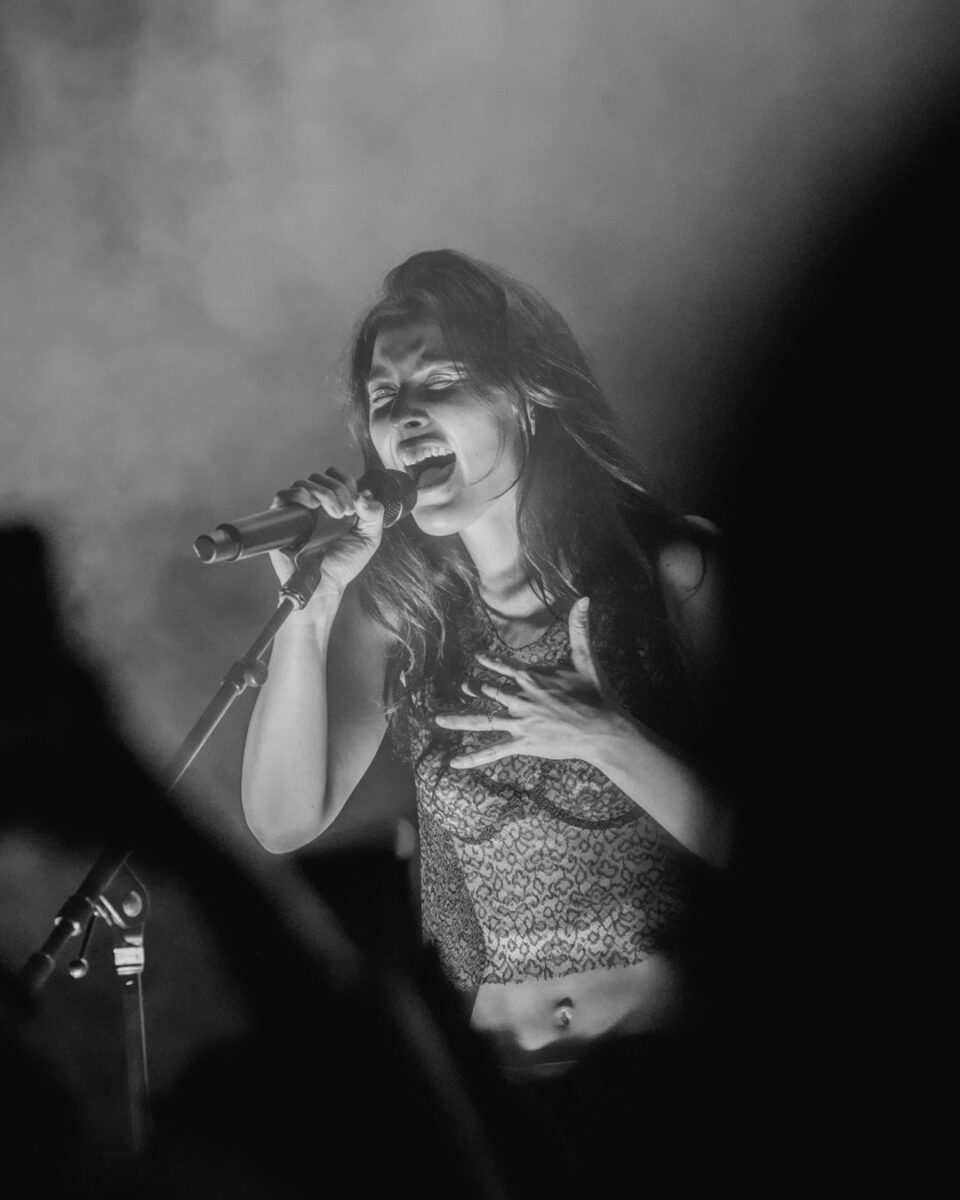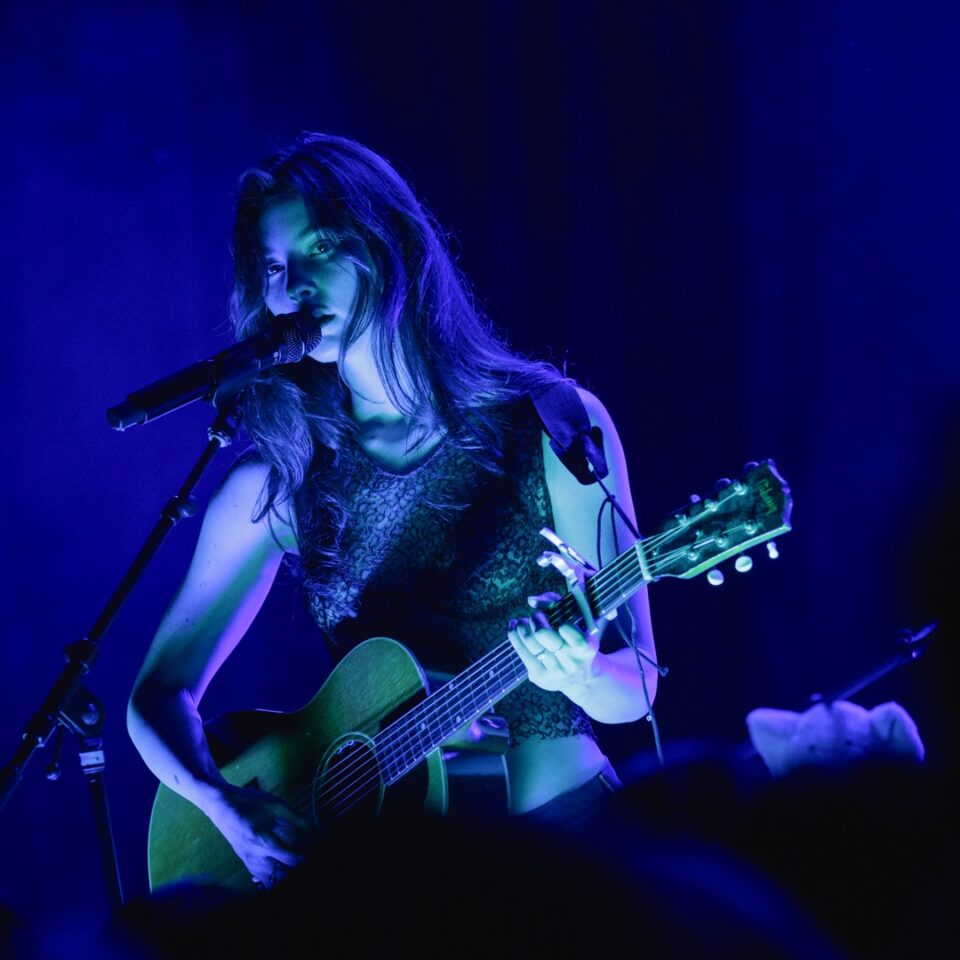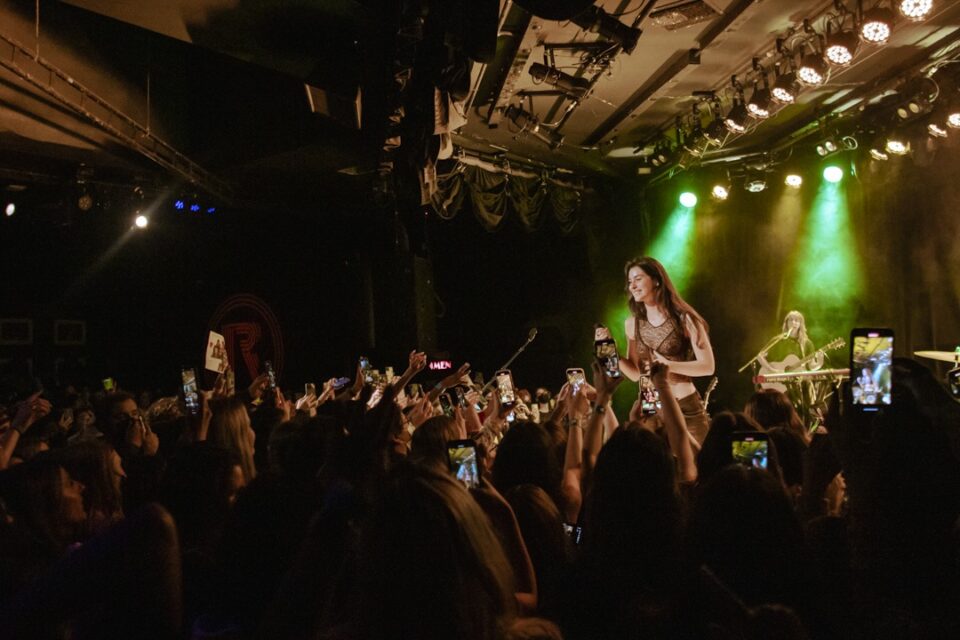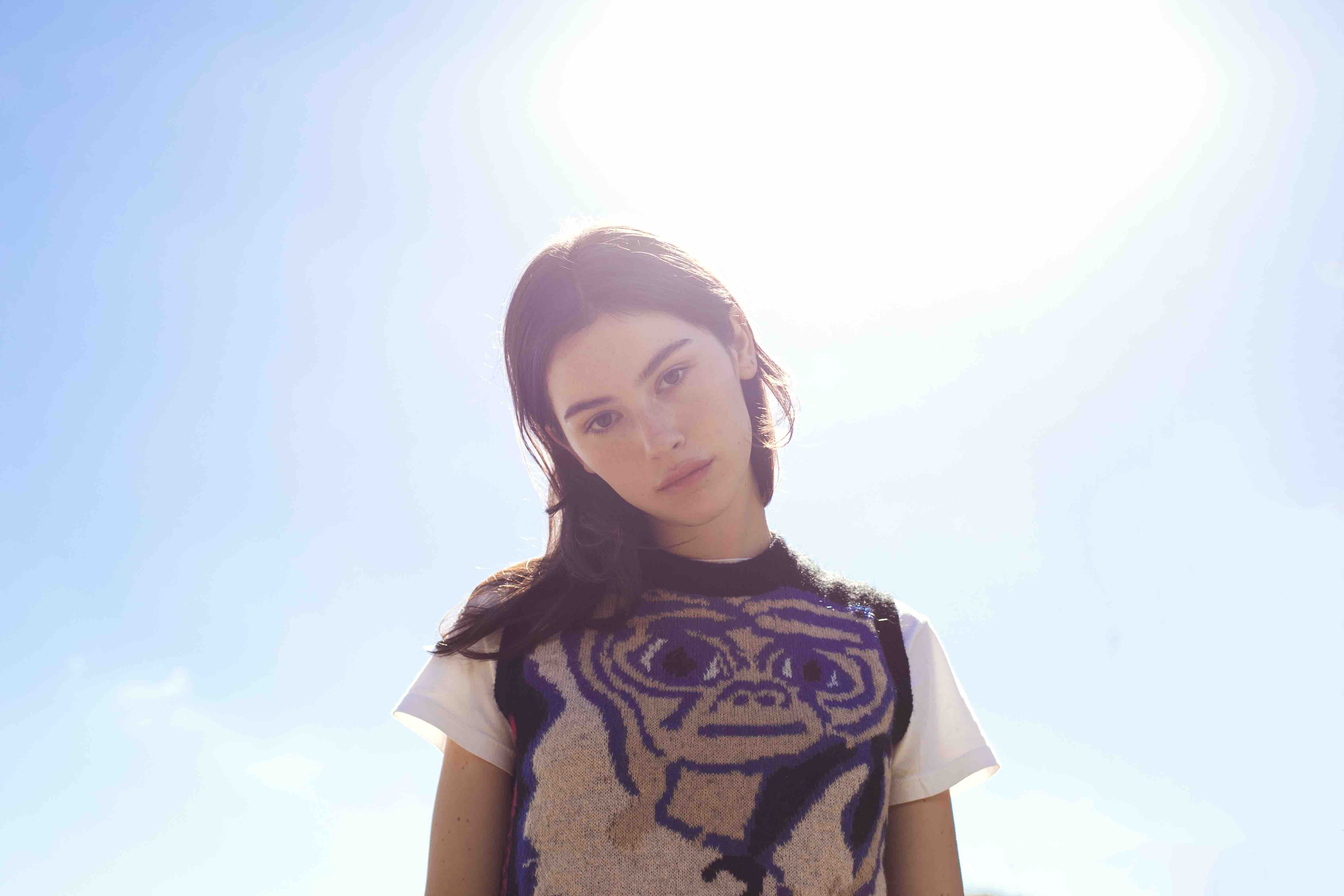This article appears in FLOOD 12: The Los Angeles Issue. You can purchase this special 232-page print edition celebrating the people, places, music and art of LA here.
BACKSTORY: 22-year-old singer/songwriter with a penchant for brutal breakup anthems
FROM: Born and raised in Los Angeles, California
YOU MIGHT KNOW HER FROM: Her heart-crushing debut project minor, which has been championed by everyone from Olivia Rodrigo to Post Malone
NOW: Back on the road with Olivia Rodrigo in support of her recently released album, This Is What It Feels Like, which features writing and production credits from The National’s Aaron Dessner
With its hushed, confessional tone and unflinching honesty, Gracie Abrams’ minor stood out as one of the most gripping breakup records of 2020. The newcomer’s debut was lauded by critics and praised by her contemporaries, which raised the stakes for its followup. Abrams was determined to broaden her sonic horizons, but the pandemic intervened and a bout of writer’s block ensued. Baking, therapy, and a trip to Maine helped the 22-year-old get through it, and she dropped her sophomore project, This Is What It Feels Like, in November 2021.
“My reaction to COVID was numbness,” Abrams reveals. “That's why these songs took so long; I was feeling super stuck.” As her creative energy dwindled, the breakout star turned to baking. “I had no idea what to do with my hands,” she laughs. “If I couldn't physically write, I had to do something else." Sugar cookies soon replaced lyrics and melodies. “I got so good at baking because I got so bad at writing for a while.”
Previously cathartic and exhilarating for her, Abrams’ songwriting took on the heaviness of world events. “I struggled for so many months of the pandemic to feel like I had anything to say, or I knew what to say, or how to articulate any of my feelings,” she says. She turned to therapy and soon started writing again. “I dragged myself out of it,” she recalls, but the experience taught her valuable life lessons.
“I struggled for so many months of the pandemic to feel like I had anything to say, or I knew what to say, or how to articulate any of my feelings... Now I know it’s when you're not writing that you're living the experiences that you're going to end up writing about.”
“For a while I assumed I would feel that way forever,” she says. “Now I know it’s when you're not writing that you're living the experiences that you're going to end up writing about. I'm trying to be kinder to myself when I get stuck, because it's definitely temporary.” When the brain fog lifted, Abrams got to work on This Is What It Feels Like. Her goal? To pivot from the heartache and emotional body blows of her debut.
“minor was the result of my first breakup, and it all came from that place,” the songwriter explains. “The whole project felt like a summary of my journal entries.” For the followup, she wanted to showcase the full scope of her talent. “This new project is much less reactive, and a lot more thoughtful. I didn't really have any guidelines for making these songs—that is, with the exception of not wanting to make the same project twice, because I can write breakup songs all day long. I wanted to try to get out of that habit and write about all the other shit going on in my life and everything else that I feel, unrelated to romantic relationships, because there's obviously a lot of that.”

The pieces really started falling into place for the album when she connected with The National’s Aaron Dessner, who’d co-produced Taylor Swift’s recent albums folklore and evermore. “Collaborating with Aaron was massively important for me as a person and as a writer,” she says. “I think that's when the months of therapy that I had been doing started clicking.” Dessner and Abrams forged an almost-immediate creative bond. “We were just hanging out on our second day of sessions and he started playing the guitar you hear on ‘Rockland,’” she says. “He just kept chasing it and went into the booth to record it on three different guitars. I wrote the lyrics while he was recording the instrumental. By the time he came out, I had finished it.”
“I wanted to follow my gut on each of the songs, just feel very free to do whatever versus trying to make a song sound sad. I had a lot of fun making these songs, having more patience and a lack of expectations for myself.”
In addition to expanding her lyrical purview beyond matters of the heart, Abrams was also more willing to experiment with production. “I wanted to follow my gut on each of the songs, just feel very free to do whatever versus trying to make a song sound sad,” she says. “I had a lot of fun making these songs, having more patience and a lack of expectations for myself.” While This Is What It Feels Like sounds very different from minor, the songs are every bit as personal. “I'm just honest so that I can help myself work through situations. Maybe because I grew up with the internet, it doesn't feel super scary to be able to hit a button and share something like that.”
Her unfiltered approach resonated with Olivia Rodrigo, who listed minor as an inspiration for her chart-topping single “Driver’s License.” “Olivia definitely didn't need my help,” Abrams says. “She's such a talent and she's such an empath. I just love the community of female songwriters who are emerging right now—they’re so receptive to narrative. I love the fact that Olivia’s writing is as honest as it is. I look at her as one of the artists in our lifetime that will inspire a wave of women to write songs.”


Another hurdle Abrams overcame in 2021 was her fear of performing live. “Being face-to-face with someone and singing lyrics about very real shit in my life is terrifying,” she says. With new tour dates announced for 2022, the newcomer is excited to get back on the road. “I don't have the anticipatory anxiety that was so rampant the past five years of my life. I'm not worrying about shows anymore, I just look forward to them.”
After shaking off writer’s block and general pandemic malaise, Abrams is excited to get on with the next phase of her career. “It took me a while to get a grip, but I feel very proud of the music,” she says. “I know that it’s a reflection of the lessons I’ve learned in the last year. I just feel very lucky that the people who helped make the project were willing to bear with me ’til I got there.” FL








